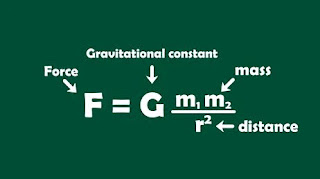Similarities and dissimilarities between Coulomb's force and gravitational force
Here we discussed the 5 points on the similarities and dissimilarities between Coulomb's force (or electrostatic force) and gravitational force. But before we proceed to the similarities and differences we should know the definitions of coulomb's force and gravitational force respectively.
What is coulomb's force?
Coulomb's force is an electrostatic force of repulsion or attraction between two stationary charged bodies that is directly proportional to the product of the charge. But inversely proportional to the square of the distance between them.
F ∝ q¹ q² / r²
 |
| credit - shutterstock.com |
The formula of coulomb's force is given as:
F = k q¹×q² / r²
Notable points about coulomb's force.
- Coulomb's force depends on the magnitude of the charged bodies.
- It is an electrostatic force.
- S.I unit of coulomb's force is Newton.
- Coulomb's force is valid for stationary bodies.
- Coulomb's force is vector quantity.
- Value of coulomb's force can be negative, positive or zero.
- Coulomb's force can be possible for at least two different charged bodies.
What is gravitational force?
Gravitational force is also an attractive or repulsive force that is directly proportional to the product of the masses of the body. But inversely proportional to the square of the distance between them.
 |
| credit - shutterstock |
Notable points on gravitational force
- Gravitational force depends on the magnitude of the uncharged bodies.
- It is not an electrostatic force.
- S.I unit of gravitational force is Newton.
- Gravitational force is valid for moving or stationary bodies.
- Gravitational force is vector quantity.
- Value of gravitational force can be negative, positive or zero.
- Gravitational force also can be possible for at least two different bodies.
Please note that we use electrostatic forces in place of coulomb's forces in some places. Because both the forces have same meaning.
Similarities between coulomb's force and gravitational force
- Both Forces Coulomb's and gravitational are directly proportional to the product of charges and masses of the body.
- Both Forces coulomb's and gravitational are inversely proportional to the square of distance between them.
- Both forces are central forces.
- Both forces are conservative forces.
- Both forces can be calculated even in vaccum.
Here is the top 5 plus dissimilarities or differences between electrostatic (or coulomb's force) and gravitational forces.
Differences between electrostatic force and gravitational force
- Electrostatic force can be the force of attraction or repulsion between two charges at rest, while gravitational force is the force of only attraction between two bodies.
- Coulomb's force can attract or repel the objects but gravitational force can only attract the bodies not can repel.
- Electrostatic force (or coulomb force) depends on the nature of the medium while gravitational force doesn't depends on the medium even it can be applicable in outer space.
- The value of electrostatic force changes as medium change but the value of gravitational force doesn't changes as medium change.
- Electrostatic force has highly greater value than gravitational forces.
- Electrostatic force is very strong force while gravitational force is weak force as compared to coulomb force.

